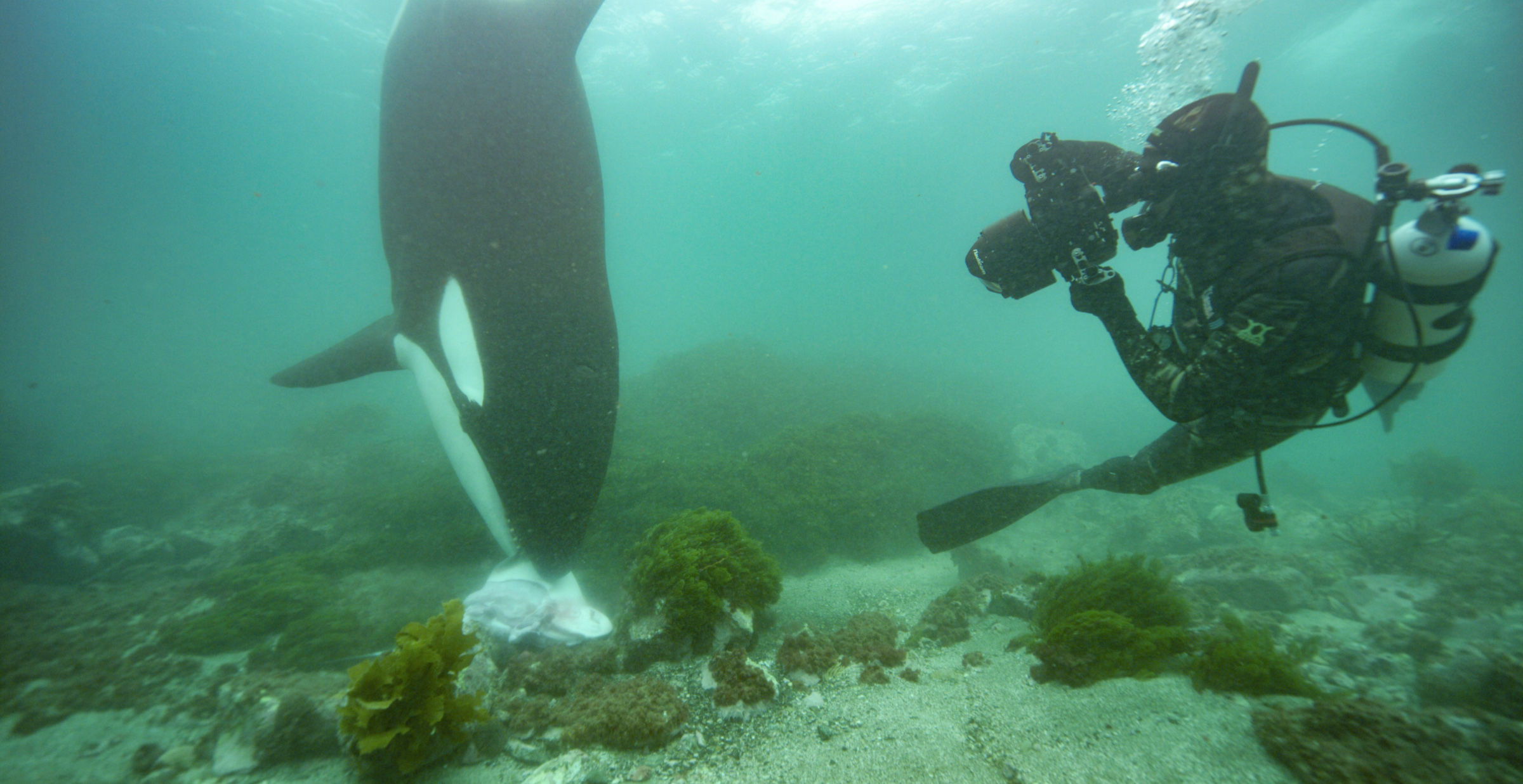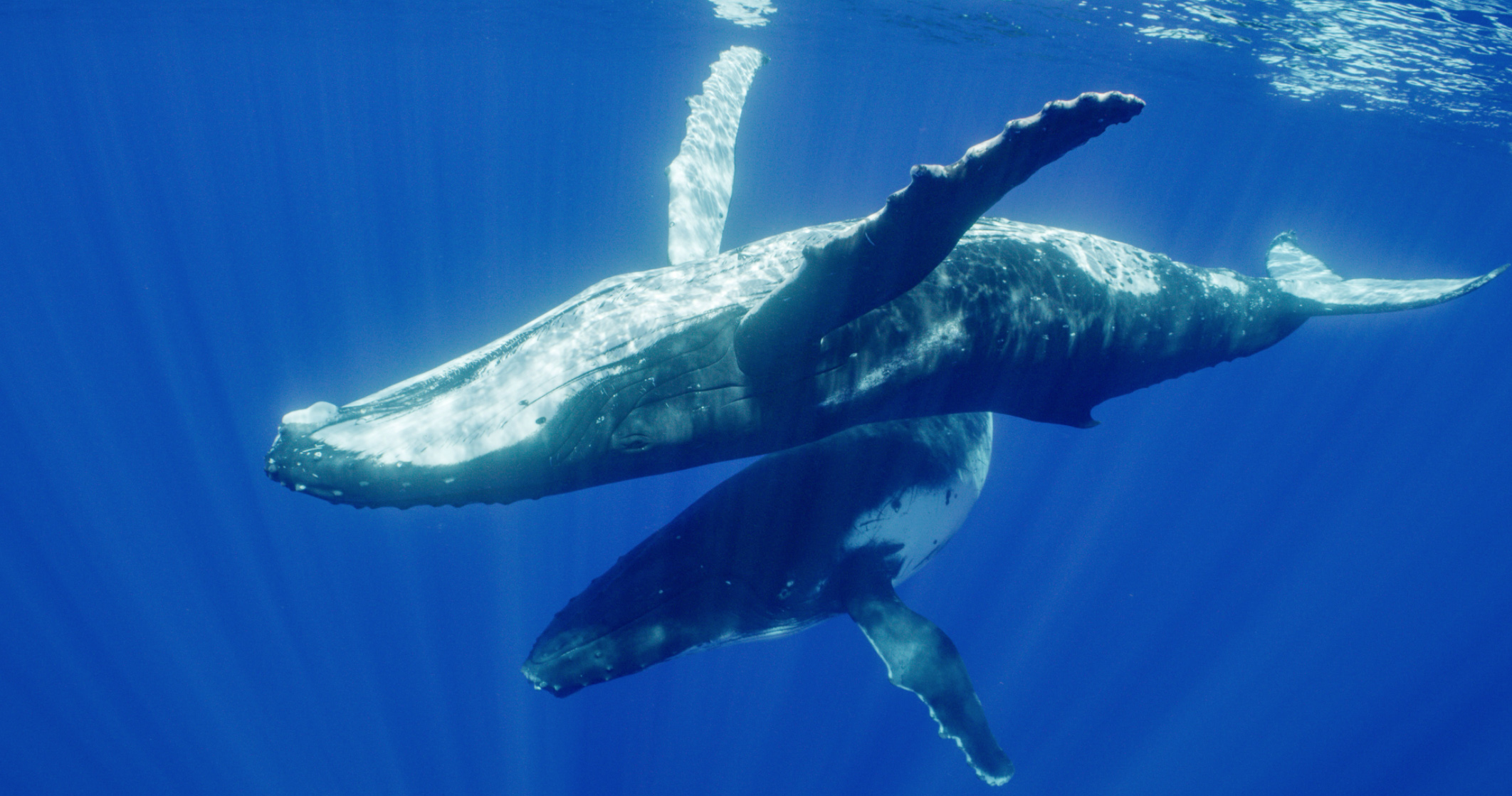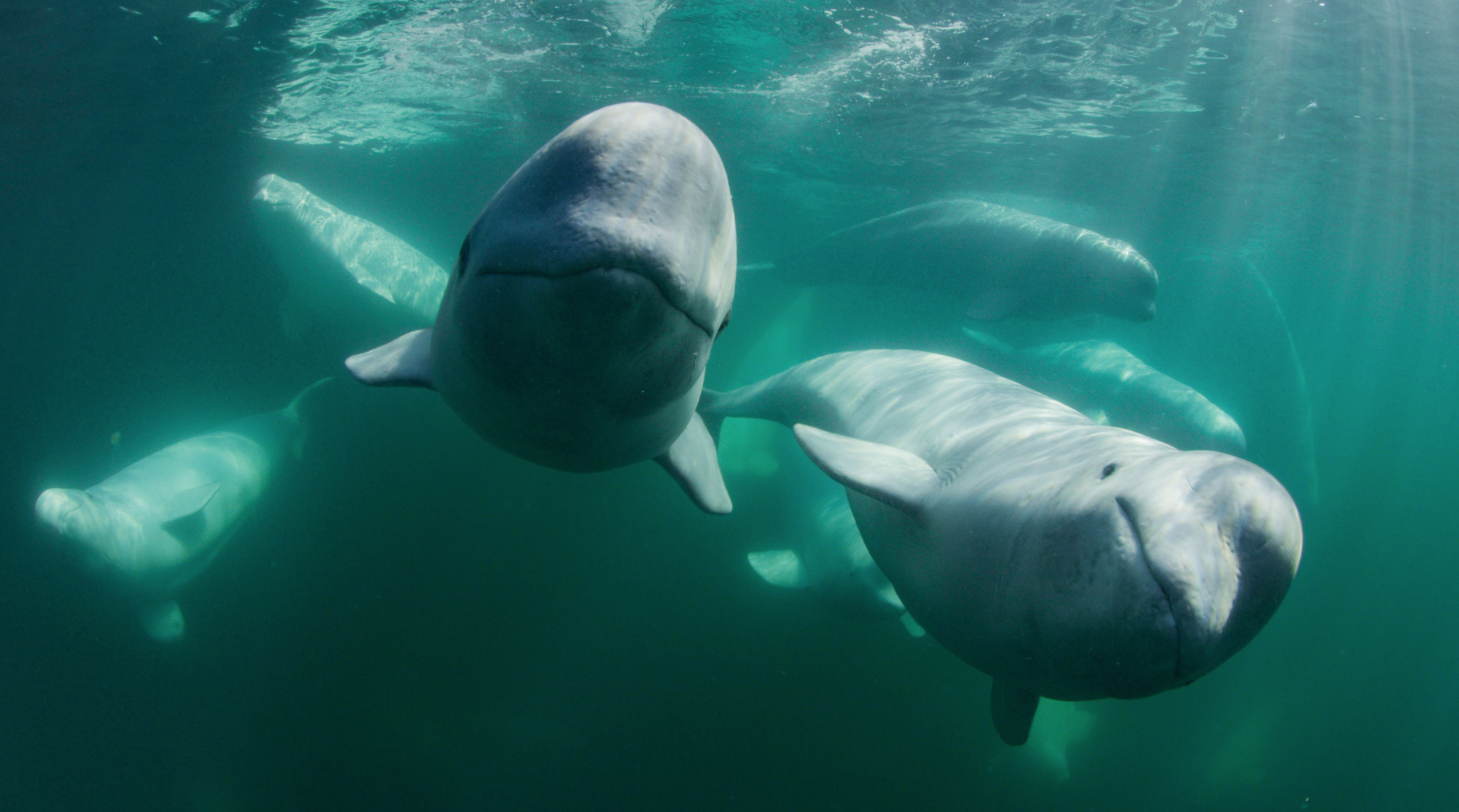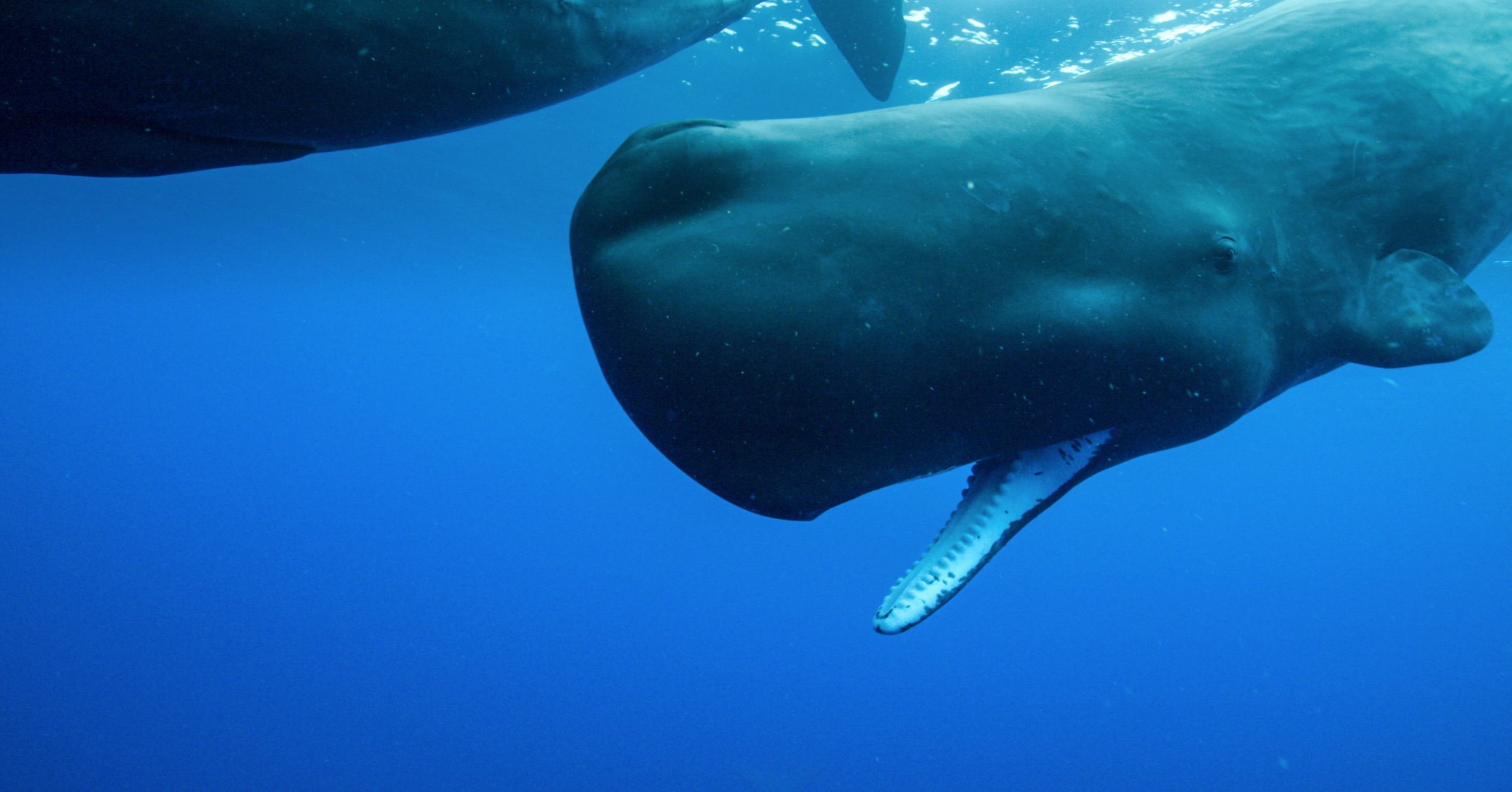Making a huge splash on National Geographic and Disney Plus for Earth Day today (April 22), a breathtaking new four-part documentary titled "Secrets of the Whales" is destined to take adventurous viewers on a global odyssey to experience the magic of whale culture like they've never seen it before.
Produced by Oscar-winning filmmaker James Cameron ("Titanic," "Avatar") and narrated by Golden Globe-winning actress Sigourney Weaver ("Alien," "Galaxy Quest"), this event series from director Brian Armstrong features stunning imagery by world-renowned National Geographic Explorer and photographer Brian Skerry, who filmed the series over the course of three years in 24 different locations.
Skerry's revelatory work will also be showcased in the latest issue of National Geographic magazine and the deluxe National Geographic companion book, "Secrets of the Whales," released this month in conjunction with the documentary series.
Space.com spoke with Skerry concerning his encounters with orcas, humpbacks, beluga, and sperm whales around the planet, documenting their complex interactions and culture, new theories on whales navigating by the stars, and the joys of interstellar whales in "Star Trek IV: The Voyage Home."
- Want to try Disney Plus? You can get a 7-day free trial here
- Sign up for Disney Plus for $6.99/month

Space.com: How did this whale documentary project come about, and what were your overall goals?
Brian Skerry: I created "Secrets of the Whales" over the last decade or more, since my last big whale project for National Geographic. In 2008 I did a project about the most endangered whale in the world, the North Atlantic Right Whale, and since that time I've been anxious to do another big whale project in which I wanted to include multiple series. But I couldn't find the right narrative to connect the dots between humpbacks and orcas and belugas and sperm whales.
In 2015 I did a cover story for National Geographic about dolphin intelligence, working with five different species around the world. I didn't realize it then, but what I was looking at to tell that story was indeed culture. The fact that these animals are doing things differently within a genetically identical species in different parts of the world.
Get the Space.com Newsletter
Breaking space news, the latest updates on rocket launches, skywatching events and more!
So I started drilling down, talking to scientists and reading papers and looking at the science that was emerging about whale culture. Dr. Shane Garrow, who lives in Ottawa, Canada, has studied sperm whales in Dominica in the Eastern Caribbean for the last 15 years, and he explained to me that behavior is what we do, and culture is how we do it. Humans eating food with utensils is behavior. Whether you use forks or chopsticks is culture.
Related: Solar storms might be causing gray whales to get lost
In the whales he was studying, there were about 24 families that have their own unique dialect. And they don't intermingle with other sperm whales that move into those waters that have a different dialect. This was the neighborhoods of New York at the turn of the last century, where the Irish and the Italians and everyone was in their own little cultural enclave. Then I started looking at humpbacks and belugas and orcas and saw they all had these rich cultures.
For me it was a real game-changer. I thought a story that used the latest and greatest science to reveal human-like traits about these charismatic ocean animals, if we could see the ocean and our planet through the lens of the culture of another species, that could change our perception of the natural world and our relation to it.
Given the scale and scope of what I wanted to do, I went to the National Geographic Society and proposed a three-year fellowship and they approved that. Then I went to the Nat Geo Channel and talked to the executives there about doing a documentary, and they loved it and wanted four one-hour documentaries. Red Rock Films came in so we could scale it up to go to other locations and we also did a companion book for the book division and it all sort of organically grew.

Space.com: How did James Cameron get involved with "Secrets of the Whales?"
Brian Skerry: I knew James Cameron from years past and he's an Explorer in Residence at the National Geographic Society. He got wind of this and wanted to come on board, and thank God that he did. He brings a very unique set of skills as a master storyteller and filmmaker who creates fictional worlds and builds the equipment necessary to film them in 3D.
But he's also this pioneering ocean explorer who has done what few humans have ever done as well. Having him at the Executive Producer level where he can shape some of that narrative and really drill down on science and storytelling is remarkable and a great plus.
Space.com: One of the most intriguing topics coming out is the idea of humpback whales using celestial navigation to follow annual migration routes. What are your thoughts about whales and their connections to the stars?
Brian Skerry: Well, you're talking about something that is of tremendous interest to me. I remember being in the South Pacific in the Cook Islands with a dear friend of mine who is a humpback whale researcher named Nan Hauser.
For the past 20 years she's been living there, and we were on the boat one day after I was in the water with the humpbacks, which is magical, and she was telling me about this. There have been papers published and the science seems to indicate that these long migrations they make — Cook Island whales go to Antarctica, Maui whales go to Alaska — are very precise, and they go out to certain places and make a 90-degree turn and stay on a trajectory.
Scientists believe they are using celestial navigation and that there is some coordination with the heavens in terms of how they navigate. I'm definitely interested in doing something more on this topic and it's on the top of my list in terms of what I'm looking at for future storytelling and science because it's going to be revelatory.

Space.com: Speaking of stars, in the 1986 Hollywood movie "Star Trek IV: The Voyage Home," Earth's survival is linked to our protection of humpback whales. What were your impressions of the sci-fi film as an acclaimed whale expert?
Brian Skerry: Yeah, George and Gracie! Well, I'm a huge Trekkie as well and can never get enough "Star Trek." I loved "Star Trek IV." I loved the Klingon ship in the park with the cloaking device, and Spock in his robe out there. I don't know that humpback whales are true aliens and are speaking to other worlds. That notion is a little mystical but wouldn't that be wonderful if it were true.
On a basic level, these are animals that we've been studying for a long time, and yet we've only scratched the surface. Like these 20-minute songs that they create new every year and pass across the entire Pacific Basin into the Atlantic, this horizontal transmission of culture. What else might be encoded in those songs? I don't know. And maybe I'm getting a little mystical with that, but I think there probably is more. Could it be like an Aboriginal songline where they're communicating cultural things there?
I don't know if any scientist wants to go that far out on that limb. But when it comes to "Star Trek IV" and the notion of humpback whales being these highly sentient creatures that have cultures that we do not fully understand yet, I think they were dead on.
Related: Time loops and space whales enliven 'Star Trek: Discovery'


Space.com: How did this three-year "Secrets of the Whales" project affect you both personally and professionally?
Brian Skerry: It affected me profoundly. I went in with certain preconceived notions, I had a shot list of things I hoped we would achieve. It was the most ambitious project of my career. I knew that working with whales and working in the ocean, there was a high likelihood of failure and the risks were there. But we ultimately got everything we wanted and so much more, like the stingray scene [Episode 1]. In the time since I've reflected on this and I think the whales have reminded me of things perhaps I already knew, but sometimes forget.
In my career, I'm away eight or nine months a year on this hamster wheel running around the world. Coming home from Maui and being in lockdown with my family during the pandemic, it reminded me of the whales. They live these difficult lives in the ocean, but they do have families and every few days they come together and reaffirm those family bonds. They are social creatures just like we are and they've learned to not forget about the necessary connections with their fellow whales.
Those connections, the communities and the cultures the whales share all mirror human culture, but sometimes we forget about that. I think that's an important message from "Secrets of the Whales."
Nat Geo's "Secrets of the Whales" premieres on April 22 in 172 countries and 43 languages.
Follow us on Twitter @Spacedotcom and on Facebook.
Join our Space Forums to keep talking space on the latest missions, night sky and more! And if you have a news tip, correction or comment, let us know at: community@space.com.

Jeff Spry is an award-winning screenwriter and veteran freelance journalist covering TV, movies, video games, books, and comics. His work has appeared at SYFY Wire, Inverse, Collider, Bleeding Cool and elsewhere. Jeff lives in beautiful Bend, Oregon amid the ponderosa pines, classic muscle cars, a crypt of collector horror comics, and two loyal English Setters.









